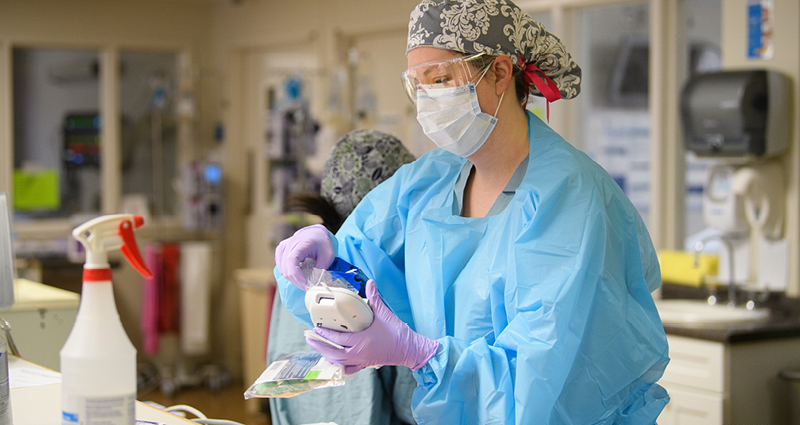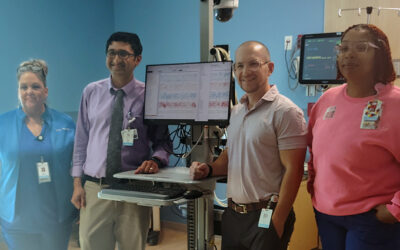The COVID-19 pandemic reshaped healthcare in ways that continue to echo today—but within the walls of Our Lady of the Lake, it also revealed something more enduring: resilience.
Catherine O’Neal, MD, chief academic officer for Franciscan Missionaries of Our Lady Health System, reflects on a powerful new project, Under Pressure: A Louisiana Hospital’s COVID-19 Experience, in a recent episode of Medical Monday with Brian Haldane.
The project, created by Our Lady of the Lake Health, part of Franciscan Missionaries of Our Lady Health System, in partnership with Louisiana State University’s (LSU) Manship School of Mass Communication and LSU Libraries, preserves the personal stories of frontline healthcare workers during the pandemic.
The collection captures the deeply personal stories of frontline workers — tales of uncertainty, grief, hope and unshakable commitment — preserved not just for the record, but for the generations that will seek to understand what it meant to serve during a global crisis.
Preserving What Might Be Lost
The idea behind the project was born from a realization: people were already forgetting.
“I was listening to a story one evening and thought, ‘Oh my goodness, I’ve never heard that before,’” Dr. O’Neal says. “And I thought, we’re going to forget what we went through, what we did together as healthcare workers.” That urgency to preserve memories became the driving force behind the interviews, which were recorded at Our Lady of the Lake Regional Medical Center, and now live permanently at LSU Libraries’ oral history archive.
What makes this collection different is its personal lens. The interviews don’t focus solely on logistics or protocols — they explore what it means, emotionally and physically, to be present in the face of overwhelming uncertainty.
“We wanted to talk about how people who have to do hard things sustain their work,” she says. “How people come in day in and day out and say, ‘I’m going to be here for someone else.’”
A Community that Showed Up
Beyond the healthcare teams, the project sheds light on the community’s response — moments of generosity that helped carry exhausted teams through dark days.
“People made masks, prepared food, brought gifts. It made our team feel like the community had their back,” Dr. O’Neal recalls. “That was something we didn’t talk about enough, and I’m so glad people shared those memories.”
She emphasized that these expressions of care meant more than words could capture. “There were so many wonderful stories, again — things we kind of forgot about,” she says. “And I think the community should know just how much that support meant.”
Honest Voices, Unfiltered Emotion
The stories recorded in Under Pressure are not polished or edited to fit a neat narrative. They’re honest.
“There were a lot of moments of doubt — ‘Can we do this? Is this the right thing to do?’ And they didn’t hold anything back,” says Dr. O’Neal.
She was particularly moved by the nursing interviews. “Hearing what they went through — I just wanted to give them a hug and tell them how much I appreciate them. So does the hospital. So does the community. They’re some of the most resilient people I’ve ever met.”
Looking Through a Different Lens
For many outside of healthcare, the pandemic might already feel like a distant memory. But Dr. O’Neal hopes this project helps reframe the narrative.
“I hope people see the pandemic through the lens of the healthcare worker—the compassion, the resilience, the humility it took to keep going,” she says. “I think it will make people proud of the community we live in today.”
Seeing the Pandemic Through Their Eyes
The Under Pressure project isn’t just about history. It’s about humanity. Through these stories, we’re reminded of the toll the pandemic took, and the strength it demanded. We’re reminded of how far we’ve come, and of the people who got us here.




